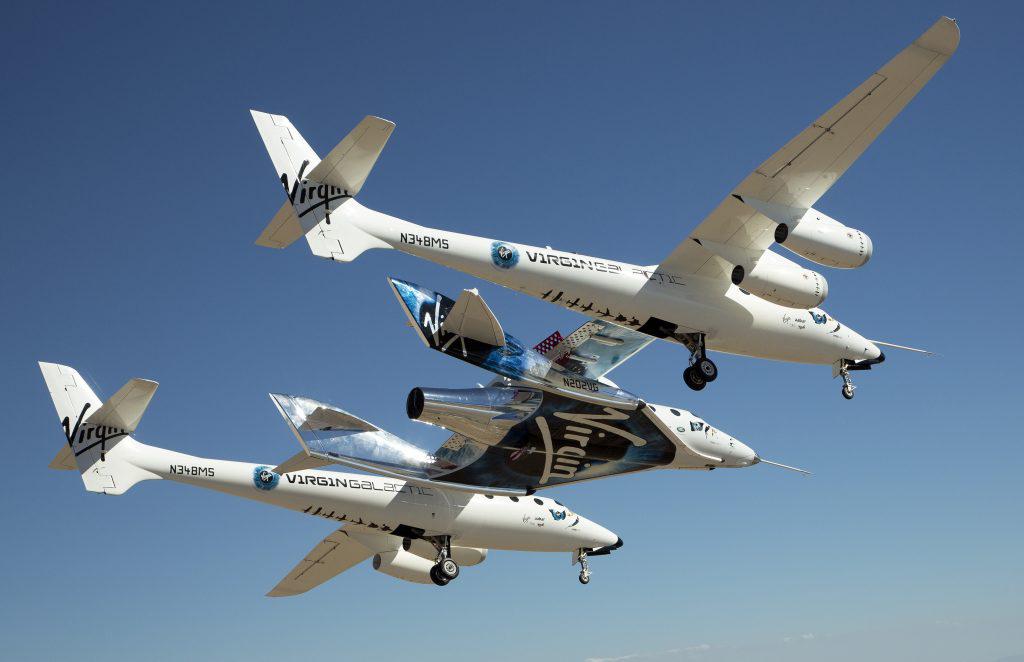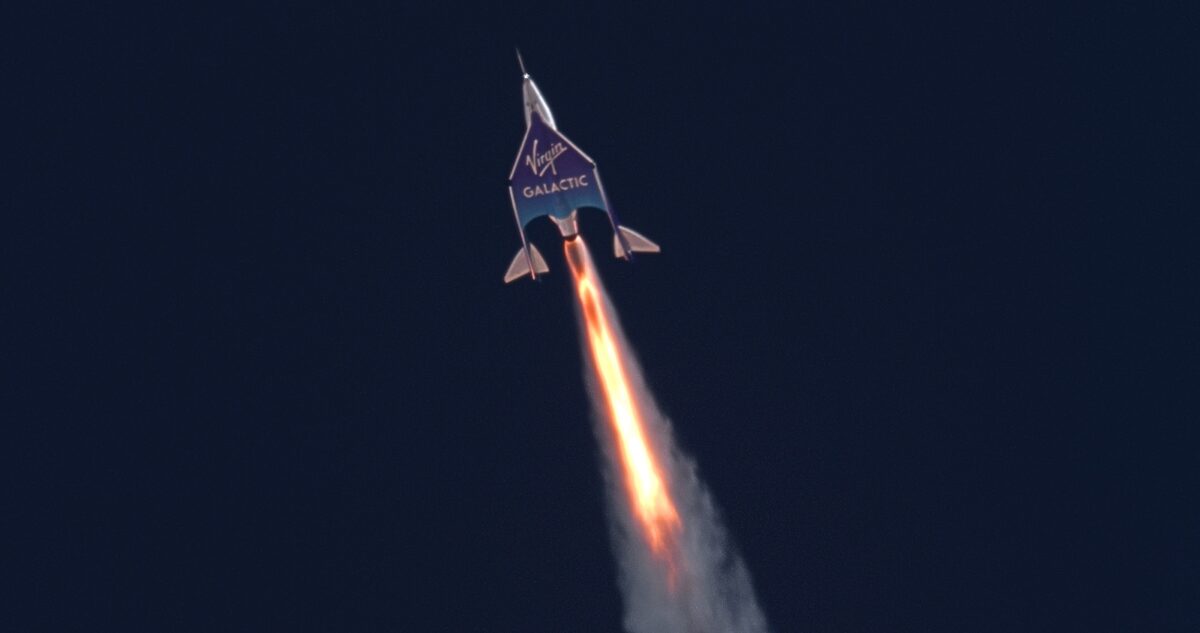Virgin Galactic will reduce the number of flights of its VSS Unity suborbital spacecraft (SpaceShipTwo) and completely stop them by mid-2024. This was stated in a recent announcement by its management.
VSS Unity flight statistics
The VSS Unity spaceplane is designed to organize suborbital commercial flights to the edge of the atmosphere. It takes off in combination with the carrier aircraft White Knight Two. Upon reaching the desired height, the spaceplane is dropped, after which it rises with the help of rocket engines. VSS Unity is designed to carry six people (two pilots, an instructor and three passengers) and can reach the 85–90 km mark, providing several minutes of being in zero gravity.

Commercial operation of VSS Unity began in the summer of 2023. At the moment, the spaceplane has managed to make five flights. The last one took place on November 2, one of its participants was the head of the New Horizons mission, Alan Stern.
The sixth commercial flight of Virgin Galactic is scheduled for January and the seventh for the second quarter of 2024. The eighth flight may take place around the middle of next year, but Virgin Galactic has not yet decided whether it will carry it out. But even if this flight takes place, it will most likely be the last for VSS Unity.
Pause in tourist flights
The reason why Virgin Galactic actually decided to stop flying VSS Unity is because of its intention to focus all resources on creating the next generation Delta spaceplane. According to the company’s management, Delta class devices will be able to fly twice a week, unlike Unity’s monthly flights. At the same time, they can carry up to six passengers against Unity’s four, which in theory can bring the company 12 times more revenue per month.

On November 7, Virgin Galactic announced the upcoming layoffs of staff and cuts in other expenses to concentrate resources on Delta. In total, the company will lay off 185 people, which is about 18% of its current staff. Virgin Galactic’s statement says nothing about the future of VSS Unity. But the company’s executive director, Michael Colglazier, said during the conversation that during five commercial flights, specialists had already learned everything they needed. He also noted that the cost of operating a spaceplane exceeded the income it brought.
During the latest VSS Unity missions, Virgin Galactic plans to focus on more “profitable” fields. These include scientific research that makes more money per seat than tourists. Some seats can also be sold to people willing to pay a premium price of USD 1 million (now the ticket price is USD 450,000). As for the new Delta-class spaceplanes, the company plans to begin their test flights in 2025 and begin commercial operation in 2026.
According to https://spacenews.com
Follow us on Twitter to get the most interesting space news in time
https://twitter.com/ust_magazine
